English Literature
Head of Department: Mrs A Gorman
Exam board: OCR
Qualification name: English Literature
Qualification codes: H472
What you will study
Students study a minimum of eight texts, including at least two examples of each of the genres of prose, poetry and drama, to develop their ability to analyse and evaluate literary texts across a variety of genres and periods.
Component 01: Drama and poetry pre-1900
In Section 1: Shakespeare – students study one Shakespeare play.
In Section 2: Drama and poetry pre-1900 – students study one pre-1900 drama text and one pre-1900 poetry text.
Component 02: Comparative and contextual study
There are five topic areas:
- American Literature 1880—1940
- The Gothic
- Dystopia
- Women in Literature
- The Immigrant Experience
Students choose one topic area and study at least two whole texts, one of which must be from the core set text list for their chosen topic area.
Component 03: Literature post-1900
This component encourages individual study, Students study three literary texts, which must include one prose text, one poetry text, and one drama.
- Close reading or re-creative writing with commentary
- Comparative essay
Why choose English Literature?
The OCR course offers opportunities to explore texts from Chaucer to the present day. The syllabus encourages literary debate, promotes wider reading and develops skills in responding to a writer’s use of language, form and style. The course emphasises breadth as well as depth, covering key areas of the canon whilst allowing students to develop their own interests in a personal investigation. Assessment covers at least eight texts of poetry, drama and prose and includes Shakespeare and writing pre- and post-1900. The OCR course is considered an excellent preparation for university and employment.
Course requirements
It is recommended that students have attained literacy skills at a level 5 in GCSE English Language.
Related subjects at Sixth Form
Subjects that related well to literature include History, English Language, Ethics and Philosophy, Politics, Psychology and Modern Languages.
Where could this lead?
English graduates develop a wide range of skills that are valuable to employers including how to argue a point, how to think independently, to summarise, to write and speak well, to present information effectively and to work as part of a team. Career opportunities for those studying literature are wide-ranging and include: law, writing, journalism, broadcasting, personnel management, teaching, social work, copywriting, marketing and advertising.

